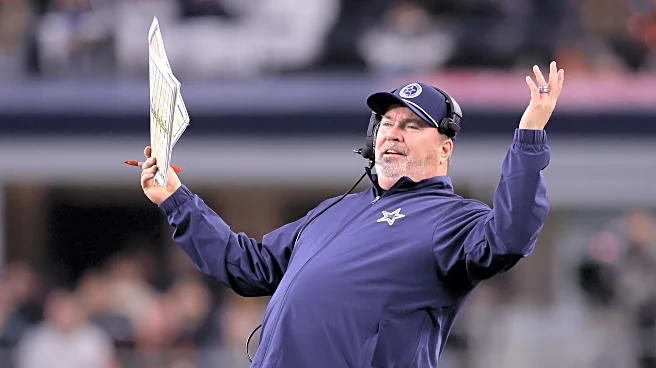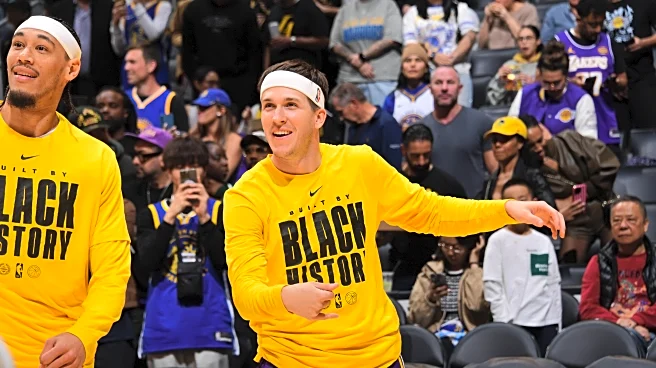Rapid Read • 7 min read
The National Football League (NFL) has announced a ban on the use of ammonia and smelling salts on the sidelines during games. This decision comes amid concerns that players may be using these substances to potentially influence the results of concussion tests. Smelling salts, which are commonly used by players to stay alert and energized during games, have been reportedly used by some to appear more cognizant during concussion evaluations. The league's move aims to mitigate risks associated with brain injuries, which have become a significant concern in the sport. The decision has sparked reactions from players, including San Francisco 49ers' George Kittle, who expressed his dissatisfaction with the ban.
AD
The NFL's decision to ban smelling salts is a critical step in addressing the ongoing issue of player safety, particularly concerning brain injuries. Concussions and their long-term effects have been a major concern in the league, prompting increased scrutiny and the implementation of stricter safety protocols. By eliminating the use of smelling salts, the NFL aims to ensure that concussion tests are not compromised, thereby enhancing player safety. This move reflects the league's commitment to protecting players from potential harm, even if it means restricting substances that are widely used for performance enhancement. The ban could lead to changes in how players prepare and maintain focus during games, potentially impacting game dynamics and player performance.
The NFL's ban on smelling salts is likely to prompt further discussions on player safety and the effectiveness of current concussion protocols. Teams and players may need to explore alternative methods to maintain alertness and energy levels during games. Additionally, the league may face pressure to enhance its concussion testing procedures to ensure they are robust and not easily influenced by external factors. The ban could also lead to increased scrutiny of other substances and practices used by players, as the NFL continues to prioritize health and safety. Stakeholders, including players, coaches, and medical professionals, may engage in dialogue to address these challenges and develop comprehensive solutions.
AD
More Stories You Might Enjoy













